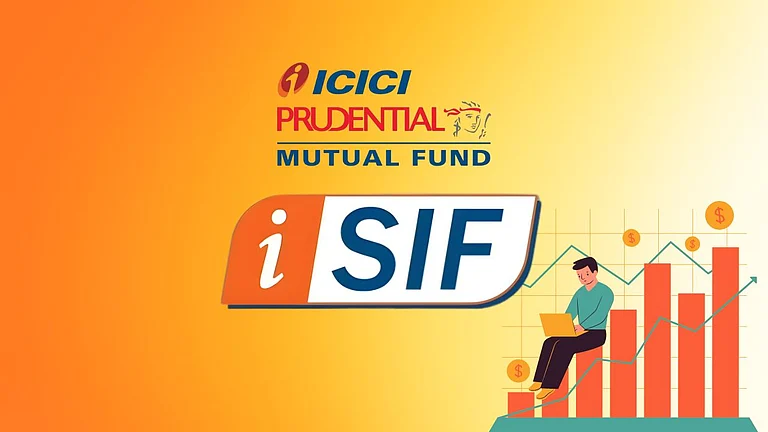Market regulator SEBI recently launched a new category of investment vehicle, Specialised Investment Funds (SIFs), effective from April 1, 2025,. The investment vehicle was aimed to cater to the needs of the investors who wish to have more tactical control. It was also supposed to offer wider asset exposure than what a mutual fund offers but is not as high-entry as Portfolio Management Services (PMS).
The minimum investment threshold was kept at Rs 10 lakh, positioning it as a middle ground between mutual funds and PMS, accessible but not mass market.
SIFs can combine the best features of Mutual Funds and Portfolio Management Services (PMS). Think of SIFs as a ‘middle path’, they offer more flexibility than regular mutual funds and are more accessible than PMS, which is typically for ultra-wealthy investors. Outlook Money spoke with Anuj Kumar, Managing Director, CAMS to have all frequently asked questions (FAQs) around SIF answered.
Here Are Some Frequently Asked Questions (FAQs) On SIFs
Q1. How Are SIFs Different From Mutual Funds and PMS?
Answer: A Specialised Investment Fund combines the best features of a Mutual Fund with the best features of a Portfolio Management Service (PMS). Think of SIFs as a “middle path” They offer more flexibility than regular mutual funds and are more accessible than PMS, which is typically for ultra-wealthy investors.
What makes SIFs unique:
Retail-friendly with a Rs.10 lakh minimum: SIFs are targeted at affluent investors who want professional management and SIP/SWP flexibility, bringing familiar mutual fund features to a more flexible product.
Wider investment options: SIFs can invest in stocks, bonds, real estate trusts (REITs), infrastructure investment trusts (InvITs), and even derivatives like futures & options and this gives fund managers more room for tactical strategies.
Strong regulation: SIFs are governed by SEBI under the mutual fund rulebook, so investor safety and transparency are built in.
SIFs can be a great option if investors are looking for diversification and broader exposure with SEBI-backed safety and operational transparency.
Q2. How should a retail investor think about SIFs as part of their broader diversification strategy? What are common risk-return predictions?
Answer:
SIFs are ideal for investors who have already invested in mutual funds, stocks, or bonds and are now looking to take the next step. They add a layer of diversification that includes strategies not usually found in traditional investments.
Risk: Yes, they can take some calculated risks, like using derivatives, but SEBI limits this to 25 per cent, so it is controlled.
Return: These strategies can help deliver better returns during volatile or sideways markets, but of course, no investment is risk-free.
Q3. What kind of investors are showing early interest in SIFs, HNIs, family offices, or institutional players?
Answer:
A recent CAMS survey of over 1,200 mutual funds and AIF/PMS distributors shows the early adopters are:
Investors with large mutual fund holdings (69 per cent of the distributors say so) interested in next-level diversification within a regulated framework.
Individuals who already trade in stocks and derivatives (54 per cent).
PMS and AIF investors are looking for more options (49 per cent).
In simple terms, people already comfortable with market-linked investments are the first to explore SIFs.
Q4. Are there specific asset classes or strategies where SIFs could outperform other investment routes?
Answer:
Yes, SIFs open doors to new and exciting investment opportunities:
Alternative assets: They can invest in REITs, InVITs, and structured debt, which offer stable income but are not usually available in mutual funds.
Tactical derivative use: With some freedom in using futures and options, fund managers can protect the downside or boost returns.
Smart allocation models: They can use technology and rule-based algorithms to decide how to spread investments across assets dynamically.
Focused themes: Want to invest in green energy or digital transformation? SIFs allow for a sharp focus on such themes.
Q5. What’s the regulatory framework around SIFs? Can investors trust the product long-term?
Answer:
Yes. SEBI has put a clear and comprehensive set of rules in place for SIFs, starting April 2025.
These include:
Eligibility norms for Asset management companies regarding who can launch and manage these funds.
Branding and disclosure standards on how to brand and disclose risks.
Strict governance and compliance measures.
This clarity, combined with oversight from the Association of Mutual Funds in India (AMFI) and SEBI, provides a strong foundation for investor trust.
Q6. One concern investors often have with new fund structures is liquidity; how flexible or locked-in is a typical SIF structure likely to be?
Answer:
This will vary based on the kind of SIF investors choose:
Some SIFs will be open-ended, letting individual investors enter and exit like a mutual fund.
Others, especially those in alternative assets, may have lock-in periods or fixed redemption cycles.
SEBI has made it mandatory to disclose all liquidity terms clearly.
Q7. Do SIFs declare net asset value (NAV) every day like mutual funds?
Answer:
SIFs are designed to offer more flexibility than traditional mutual funds by allowing for different investment strategies and approaches, including those that may not be suitable for daily trading. This can lead to different liquidity needs and, consequently, different NAV calculation and redemption schedules. Due to this reason, SEBI permits flexible NAV disclosure based on investment strategy.
While mutual funds offer daily redemption and NAV calculation, SIFs may have redemption frequencies ranging from daily to monthly or even quarterly, with a corresponding variation in NAV calculation. Hence, SIFs do not typically have daily NAV like mutual funds.
Q8. Can SIPs and SWPs be done in SIFs like mutual funds?
Answer:
Yes. Like mutual funds, SIFs offer both SIPs (Systematic Investment Plans) and SWPs (Systematic Withdrawals).
SIP allows investors to invest regularly in smaller amounts, while SWP allows them to withdraw money at set intervals. In addition to these features, SIFs are flexible and suitable for both growth and income needs, which makes them especially useful for salaried individuals and retirees.
Q9. How can investors track or manage their SIF investments?
Answer:
The management of SIF investments will be similar to that of mutual funds. MFCentral and myCAMS will offer online statements, confirmations of transactions, and portfolio insights that are very similar to those offered by mutual funds themselves.














